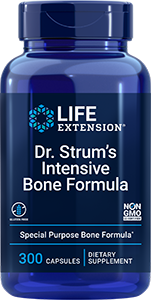- Science & Research
- Science News
- Newsletter
- 2012
- June 26

Newsletter
Newsletter
Supplementing With Omega 3 Fatty Acids Helps Protect Against Inflammation
Supplementing with omega-3 fatty acids helps protect against inflammation in overweight men and women
Tuesday, June 26, 2012. In an article published online on May 26, 2012 in the journal Brain, Behavior and Immunity, researchers at Ohio State University report an anti-inflammatory benefit for omega-3 fatty acids when consumed by overweight but otherwise healthy older, sedentary adults. Chronic inflammation is associated with heart disease, diabetes and other disorders that occur with aging. Inflammation is increased by being overweight, yet can be controlled by exercise and other therapies. The trial included 45 men and 93 women whose age averaged 51 years. Ninety-one percent of the subjects were classified as overweight and 47 percent were obese. Ohio State University professor of psychiatry and psychology Jan Kiecolt-Glaser and her associates randomized the participants to receive 1.25 grams or 2.5 grams omega-3 polyunsaturated fatty acids (in which the ratio of EPA to DHA was 7 to 1), or a placebo daily for four months. Serum interleukin-6 and tumor necrosis factor-alpha (TNF-a), which are markers of inflammation, were measured before and after treatment. Among those who received a placebo, interleukin-6 levels were increased by 36 percent and TNF-a by 12 percent at the end of the study. However, participants who received 2.5 grams omega-3 fatty acids experienced reductions of 12 percent and 2.3 percent in these inflammatory markers. "You need this good inflammation for an initial response, but if it stays up, and inflammation becomes chronic, then you've got a problem," explained study coauthor Ron Glaser, who is a professor of molecular virology, immunology and medical genetics and director of the Institute for Behavioral Medicine Research at Ohio State. "Our research and studies done by others have shown that these two cytokines are clearly related to overall health - and when they're elevated in the blood, that is not good for overall health. So the more ways we can find to lower them, the better." "Omega-3 fatty acids may be both protective so that inflammation doesn't go up, as well as therapeutic by helping inflammation go down," Dr Kiecolt-Glaser noted. "Most other trials testing the effects of omega-3 supplements on inflammation used people who were seriously diseased or skinny and healthy. You can see results in people with serious diseases, but there's a lot of other noise in that system. We wanted to make sure we were studying results in people who were fairly fit but who weren't exercising, because exercise can clearly lower inflammation." Also evaluated was the subjects' ratio of omega-6 fatty acids to omega-3 fatty acids. "Scientists tend to agree that the best way to gauge a person's omega-3 status is to see whether that ratio goes down," remarked coauthor Martha A. Belury. "That's what we saw in this study, and it was achieved through supplementation. We wanted participants to maintain normal diets and simply add this modest amount of oil to their existing diet. We expected and we found that their blood plasma omega-3 fatty acids went up in a dose-responsive manner." "This is the first study to show that omega-3 supplementation leads to changes in inflammatory markers in the blood in overweight but otherwise healthy people," Dr Kiecolt-Glaser announced. "In terms of regulating inflammation when people are already healthy, this is an important study, in that it suggests one way to keep them healthy." | ||||||||||||||||||||||||||||||||||||||||
 | ||||||||||||||||||||||||||||||||||||||||
| ||||||||||||||||||||||||||||||||||||||||
 | ||||||||||||||||||||||||||||||||||||||||
| ||||||||||||||||||||||||||||||||||||||||
OptiZinc® is a registered trademark of InterHealth Nutritionals, Inc. | ||||||||||||||||||||||||||||||||||||||||
The latest news on aging, nutrition, and vitamins
Lab
Testing
How Life Extension lab testing works










